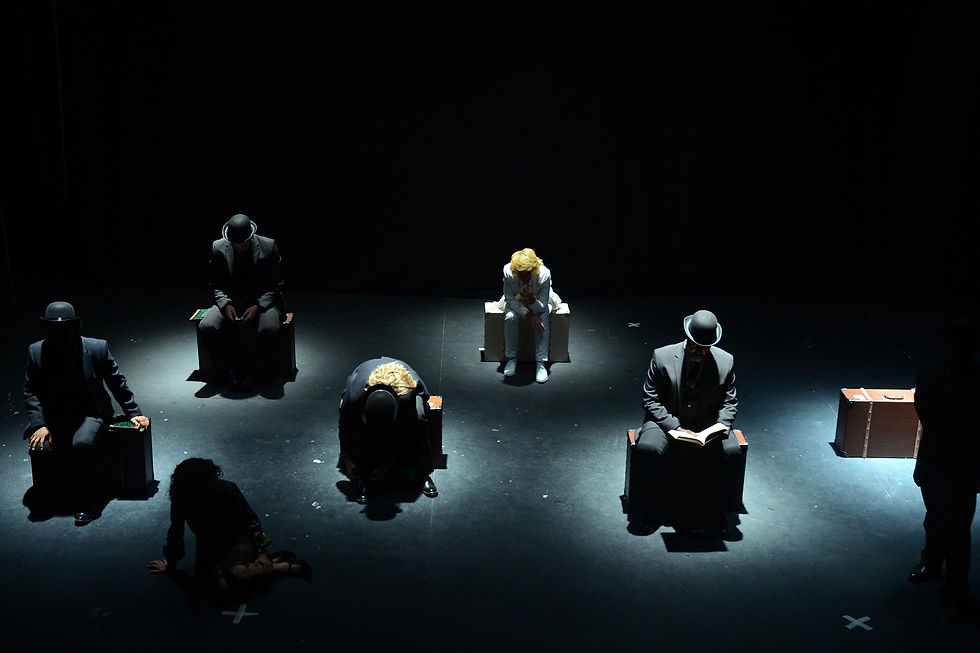
THE TEMPEST
Dramatic Composition from Shakespeare




In this adaptation of William Shakespeare's “The Tempest”, Bruno Bravo stages phonetic reorganizations, in a summoning of the present where immobility and dynamism are discovered in astonishment. Prospero, a bright and dark character, banished to an island with no geography, unleashes a storm in order to take revenge on the enemies responsible for his exile.
Bruno Bravo, director
The Duke of Milan, a lover of books and more attached to his library than his dukedom, is betrayed by his brother, who removes him from office. With the complicity of the King of Naples, Prospero is thrown into the sea with his three-year-old daughter in a rotten boat, facing certain death. However, he arrives on an island. The island is inhabited by Ariel - a spirit that Prospero frees from the dark powers of the witch Sycorax - and Caliban, the witch's son.
It all begins, however, with a violent storm. Twelve years have passed since Prospero and his daughter arrived on the island. Prospero, with the help of Ariel, provokes the storm, taking advantage of the fact that his enemies are sailing in nearby seas. He brings to the island his brother, Antonio; the king of Naples, Alonso; two noblemen; an advisor, Gonçalo; Fernando, the king's son, alone in another place and a drunkard and a jester, isolated in a third place on the island. All unscathed and in dry clothes. After this strange distribution on the board, Prospero begins the game of revenge which also serves as a laboratory for a study of humanity.
This is a play in which little happens because, from a narrative point of view, it would seem to progress without any major dramatic upheavals. However, it is also a play about everything, because of the broad spectrum it reflects on the human condition, where nothing is truly bright and nothing is truly dark.
In this show, which is calm and chilling, like a long dramatic poem, conducted by several voices, words of hermetic, humanist, utopian, classical, musical and meta-theatrical flavors, of men and spirits come together. In this chamber version, the actors are also banished, bright and dark like Prospero, only to forgive everything in the end.
text William Shakespeare
adaptation Bruno Bravo
director Bruno Bravo
cast Ana Rosa Mendes, António Mortágua, Daniel Martinho, Giovanni Lourenço,
Joana Campos, Margarida Bento, Zia Soares
light designer Alexandre Costa
music Sérgio Delgado
scenography/costume designer Stéphane Alberto
photography Sofia Berberan
